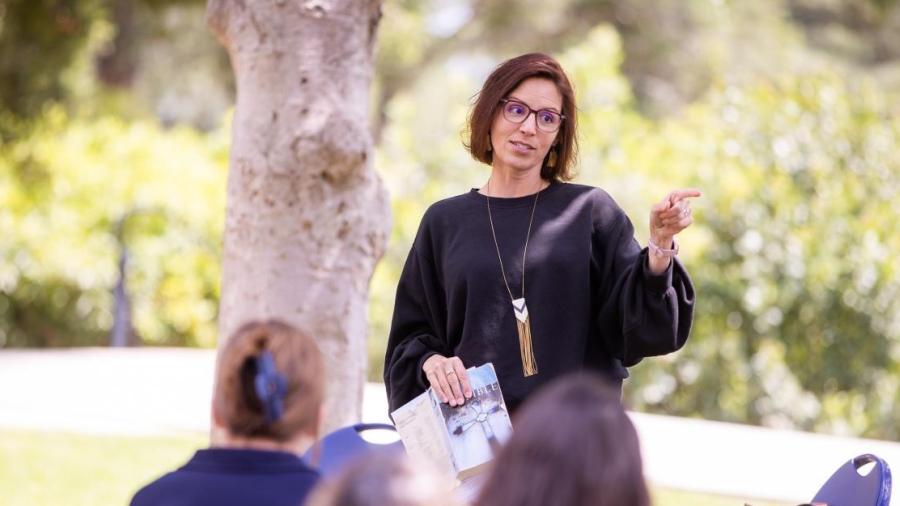CATLab Blog A Reflection of God: Technology and Imago Dei

In this blog, Rosario Montane discusses her conversation with Dr. Holly Beers about imago dei and young tech professionals.
This summer, CATLab has been reflecting about our role as image-bearers.
“But we all with unveiled faces, beholding and reflecting like a mirror the glory of the Lord, are being transformed into the same image from glory to glory, even as from the Lord Spirit.” - 2 Corinthians 3:18
1 Corinthians 13:12 says: “For now we see only a reflection as in a mirror; then we shall see face to face. Now I know in part; then I shall know fully, even as I am fully known.” As humans, we are a reflection of God, ever-distorted until we are in His glory. But how should we understand this concept as aspiring young professionals in a broken world? CATLab set out to answer their questions with the help of Dr. Holly Beers, a professor of religious studies at Westmont.
Q: How is the doctrine of "Imago Dei" traditionally understood in Christian theology?
According to Dr. Beers, the doctrine is interpreted through three different views: The functional, the relational, and the substantial views. The functional view is popular among scholars. It emphasizes the Ancient Near East context in which a conqueror would exercise dominion by placing images of himself over the land. According to this view, humans are representations of God. Therefore, we’re supposed to reflect Him and remind others who’s in charge while we steward His creation.
The relational view is one of the most prevalent nowadays. God is Relationship in His own trinitarian nature, thus, we’re also created to be in relationship. We then reflect God by creating community and good relationships. It is not likely people would have thought about Imago Dei in this way in the Ancient Near East.
The substantive view understands that humans share something essentially true from God. Jesus presents us with the most clear example of this essence, being both God and man. It is a very common view in early church history. This essence we share from God is something people perceive as different things: our mind, our intelligence, our soul perhaps. Our role as creators could also be understood as that essence from God, since He is the Creator of everything.
Q: How can young professionals in the tech world reflect the image of God through their work and interactions?
Dr Beers invites us to better serve as a reflection of God by answering some questions about ourselves that are inherently rooted in these three views and can serve as our guidelines.
- From the Functional view: Are we acting as God’s “managers” and reminding people He is in charge? Is our work well done and respectful to God?
- From the Relational view: How are we contributing to healthy relationships in our workplace?
- From the Substantial view: How are we using our intellect and creativity to honor God?
Q: What would you advise a young professional who wants to enter the tech world, where there might be some unethical practices?
She advised us to “start with an awareness.” If we realize the company has some questionable practices, we can either decide to leave or we can stay, and from our role, learn to turn that around, even in small ways. We must dare to ask the hard questions no one else is asking, and reorient ourselves and the people around us toward the things God cares about. We probably won’t be able to change much and that’s okay, because God knows our faithfulness. “I still recycle my can of soda even when I can’t recycle everyone’s,” she explained, calling us to do our part, despite how little it may seem.
“Then God said, “Let us make man in our image, after our likeness.” - Genesis 1:26
